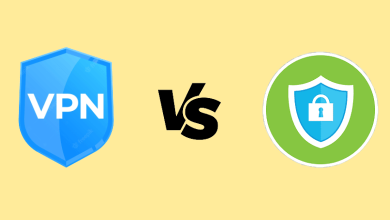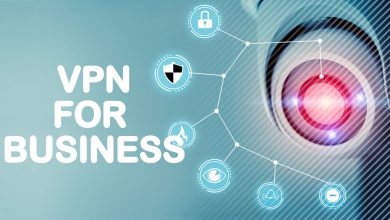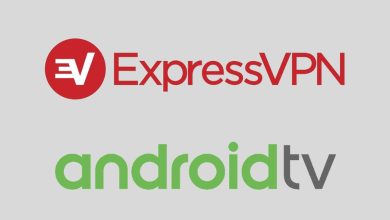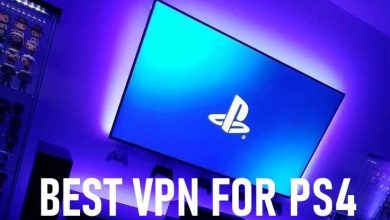Virtual private networks (VPNs) secure a user’s public internet connection by encrypting their data, masking their identity and online activities. If you’re wondering whether VPNs are safe, there’s good news: they are.
A VPN from a trustworthy service is a safe and private method to access the internet. However, before you buy into one, it is critical that you properly examine your VPN service to guarantee that it is safe.
Contents
- Are VPNs Secure?
- Can a VPN be Hacked?
- What Aspects and Characteristics Contribute to the Security of a VPN?
- 1. The Use of Multi-Factor Authentication (MFA)
- 2. Masks Your IP Address
- 3. It Does Not Collect or Log Any Information That Is Transmitted Over the Network
- 4. There Is a Kill Switch
- What Are the VPN’s Security Risks?
- Jeopardize the User Security
- Monitors Internet Activity
- Conclusion
Are VPNs Secure?
VPNs are safe provided you choose a reputable, secure provider. Secure VPNs do not track a user’s browser history and will most likely be open to any privacy regulations, as well as respond in the case of a data leak.
While a good VPN service helps safeguard your web data, you may also take extra actions to limit the chance of security breaches. Setting your browser options, for example, to only allow access to websites that employ secure communication methods such as SSL. (URLs that begin with “HTTPS://” indicate that the communication is secure.
Can a VPN be Hacked?
It is possible to hack a VPN, but not in the way you would expect. Business VPN services often employ top-tier encryption to protect your connection, usually in the form of ChaCha20 or AES-256. Both of these ciphers are top-notch, keeping prying eyes at bay and your internet behavior private.
You should not be concerned about someone compromising your VPN connection. VPNs have been hacked in different ways as follows:
Errors in system settings might result in a data breach and expose your company’s servers. Hackers frequently leave a minor trail of evidence that might alert cybersecurity specialists to the presence of an assault. Take a look at NordVPN hacked, so you can discover indicators of compromise (IoCs) and strategies to reduce the dangers of hacking.
Businesses that use VPNs must educate their workers to ensure that they, too, take the required procedures to secure while sending sensitive personal data or the company’s data.

What Aspects and Characteristics Contribute to the Security of a VPN?
We can ensure that VPNs are genuinely safe and secure if they include the following features:
1. The Use of Multi-Factor Authentication (MFA)
Before using the VPN, MFA requires users to authenticate their identity in more than one method. Combinations of passwords or PINs, answers to previously answered security questions, or authentication codes delivered to a mobile device or email are examples of this.
This extra step improves security by ensuring that only authorized users connect to the VPN. While hackers may readily get a password, MFA provides a second level of verification, making hacking that much more difficult.
2. Masks Your IP Address
A VPN should ideally mask or obscure your IP address so that others cannot monitor your web activities. While security failures might occasionally expose your IP address, the best secure VPN companies attempt to avoid leaks.
Online evaluations can reveal whether the service has a history of leaks and, if so, what steps they took to address the issue.
3. It Does Not Collect or Log Any Information That Is Transmitted Over the Network
The most secure VPNs will be “no-log,” which means that the network will not collect information passed over the network. This includes personal information, downloads, visited websites, and search history. A no-log VPN protects your online privacy and anonymity from all parties, including the provider. Even if a hacker gains access to the VPN, there will be little to no data to access.
Before purchasing and using a VPN, examine the provider’s terms of service to discover if they log information transmitted across the network (and if so, how it is handled). Some service providers may store logs but delete them regularly. Others may gather information and only share it in certain circumstances.
4. There Is a Kill Switch
If your VPN connection fails, your internet access reverts to a conventional, less-secure connection, exposing your IP address and browsing data and rendering you open to attack.
Secure VPNs provide a kill switch that immediately terminates pre-selected apps if the connection becomes unstable. (It’s worth noting that, while many VPNs have a kill switch, it may be set to “off” by default.) Check your settings to make sure this option is turned on.
What Are the VPN’s Security Risks?
Untrustworthy VPNs might risk your online safety. While some free VPNs are secure to use, others lack the capabilities needed to properly safeguard your data or, worse, offer security-compromising elements. Many premium VPNs, on the other hand, have security procedures in place to mitigate these possible security risks.
Whether you choose a free or paid network, it is critical to understand the risks associated with insecure VPNs.
Jeopardize the User Security
The basic function of a VPN is to safeguard a user’s data. However, some VPNs have vulnerabilities that make devices vulnerable to viruses and malware.
Advertising-related malware is an especially dangerous problem for free VPNs, which rely on advertising for income. Many premium VPNs do not have this issue because they include ad blockers, virus protection, and unlimited bandwidth.
Monitors Internet Activity
While VPNs are intended to safeguard internet privacy, most free VPNs include third-party trackers in their software to collect data on a user’s online behavior.
Some VPN companies conceal this information, while others make it available in their privacy policies. This problem is far less common with premium VPNs, implying that paid software will usually provide the privacy protection you require.
Conclusion
The security of a VPN is not a simple issue nor is it easy to make a judgment about it. It has many variables, all of which might have an impact on whether you’re safe and secure online. Nonetheless, services like NordVPN strike all the right notes and, as a result, make your connection considerably safer than it was before.
We highly advise you to use a VPN. Just be sure to use one that is capable of keeping you safe.
However, you are correct in questioning whether VPNs are safe to use. Consider signing up with one now that you know what they are. You’ll be taking a significant step in protecting yourself in the ever-changing digital environment.



